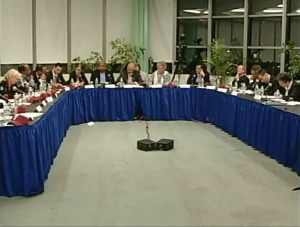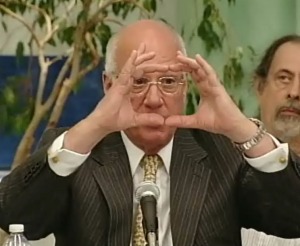 On January 28 — two months before Michael Bloomberg convened a 2010 New York City Charter Revision Commission — we predicted that his charter panel would take advantage of voters’ resentment towards the 2008 Mayor/Council term limits putsch to motivate them to endorse charter changes to increase the mayor’s power.
On January 28 — two months before Michael Bloomberg convened a 2010 New York City Charter Revision Commission — we predicted that his charter panel would take advantage of voters’ resentment towards the 2008 Mayor/Council term limits putsch to motivate them to endorse charter changes to increase the mayor’s power.
The commission’s August 23 decisions prove we were right.
The charter commission will place only two questions on the November 2 ballot: The first will ask voters whether to restore term limits to two 4-year terms from the current three, keep the Council from undoing this (does everyone forget that it was Mike Bloomberg, not the Council, who spurred the 2008 move to undo the original term limits laws?), and delay full implementation of the restoration until 2021.
Voter rejection of this ballot question would cause the current three-term limit to remain in effect, and could be used by a mayor and Council to justify a complete relaxation of term limits down the road.
A second, omnibus, ballot question will ask each voter to cast a single vote to approve an array of “good government” initiatives lumped together with unrelated “efficiency improvements.” Some of these could subtly shift power from the Council to the mayor.
Term limits would seek to bring voters to the polls. The proposed “good government” initiatives — public disclosure of independent campaign expenditures, ethics enhancements, and reduction of the signature requirement for nominating petitions — are intended to elicit a “Yes” vote that also would authorize the mayor to consolidate independent administrative tribunals, control the elimination of advisory bodies, and preclude future Council efforts to increase or enhance the mayor’s public reporting requirements.

Matthew Goldstein shows 2010 ballot space
Although speaker after speaker implored the charter revision commission to avoid combining any unrelated ballot proposals, commission chair Matthew Goldstein justified his group’s decision by blaming the city’s new computerized voting machines, which, Goldstein asserted, provide insufficient space on their paper ballot forms for individual charter proposals.
Voters, of course, still have the option to register their disagreement in November, either by refusing to vote or by rejecting “Question 2.”
We can expect editorials from the Times, the News, and the Post to apologize for Goldstein’s decision, but to urge voters to vote “Yes” on Question 2 nonetheless. History suggests that media owners want the mayoralty to be as strong as possible.


But if we vote no on question one, the Council could/would change term limits again and again….
pat dolan